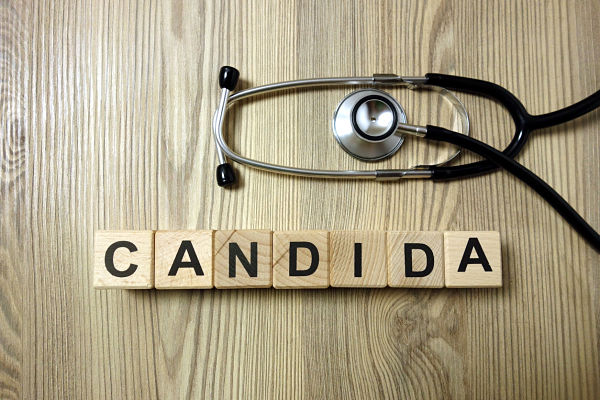The link between thrush and diabetes

Thrush is a yeast affection which can grow in warm, moist areas of the body. Known as candida albicans, there are three main types
- Vaginal thrush (vulvovaginal candidiasis)
- Thrush of the penis and foreskin (candida balanitis)
- Oral thrush (oral candidiasis)
In both of the first two types the area will be reddened, itchy and sore with a white “curd-like” appearance to the skin and there may be a discharge.
The symptoms of oral thrush will be redness or even bleeding in a painful mouth. There will be white patches in the tongue, cheeks, lips and the back of the mouth and there may be cracks at the corners of the lips. You will probably also have a bad taste in your mouth.
Thrush can also occur in the groin, armpit, underneath the breasts and between the fingers – essentially within folds of skin.
What causes thrush?
Candida albicans occurs naturally in the body and is part of the balanced system which keeps you fit and well. It is normally kept under control by your body’s immune defences but unfortunately it can multiply, and it is this excessive growth which causes problems.
It is currently thought that the following are triggers for this overproduction.
- A diet which is high in sugar or anything which converts to sugar like carbohydrates
- The use of antibiotics which can adversely affect your beneficial gut bacteria and weaken your immune system
- A period of chronic stress which causes your cortisol levels to rise and therefore your blood sugar level
- Research has shown that contraceptive pills can cause hormonal imbalance and allow the acceleration of candida growth
- A deficiency in vitamin B12 or iron
- A weakened immune system due to HIV or chemotherapy for example
- Pregnancy – due to a change in hormone levels
- Diabetes
Why is diabetes a risk for thrush?
If diabetes is not controlled there will be high sugar levels in your sweat, saliva and urine as well as in your blood. This encourages the rapid proliferation of candida albicans.
High glucose levels also change the pH level of your saliva and candida thrives in this this lower pH environment.
Diabetes additionally weakens your immune system as it affects the blood cells which are at the forefront of fighting infection. This makes it more difficult for your body to protect itself from infections – such as thrush.
Thrush as a side-effect of a new tablet used in type 2 diabetes
The sodium glucose cotransporter 2 (SGLT-2) inhibitors are new diabetic tablets that act by blocking the reabsorption of glucose in the kidney - this results in the loss of glucose in the urine and reduction in blood glucose levels.
SGLT-2 is the major enzyme responsible for glucose reabsorption in the kidney and when it is blocked it causes increased glucose excretion in the urine.
The excess loss of glucose causes a loss of calories, reduction in blood glucose and acts a mild diuretic. The SGLT-2 inhibitors also cause a modest weight loss and slight decrease in blood pressure, both of which may contribute to their beneficial effects.
Four specific SGLT-2 inhibitors, canagliflozin, dapagliflozin, empagliflozin and ertugliflozin have been shown to result in improvements in glycemic control in type 2 diabetes and to potentially decrease mortality in patients with type 2 diabetes and cardiovascular disease.
However, as a result of the increased level of glucose in the urine, common side effects include thrush and an increased risk of urinary tract infections.
How do you treat thrush?
Thrush is usually harmless but can be very uncomfortable. Firstly, wherever you can, you should minimise the risk so:
- Maintain better control of your diabetes
- Follow a more healthy diet
- After a shower make sure you dry vulnerable areas of the body well
- Wearing loose, cotton clothing will also help.
Once your GP has diagnosed thrush, they will usually treat you with antifungal medicine in the form of a tablet, cream or a pessary and the infection will generally clear up within 7 to 14 days.
Unfortunately, once you have had thrush it is easier for it to return. So, if you have challenges in managing your diabetes you will have a higher risk of the problem recurring.
You will need to avoid sex until your thrush has cleared up as it is contagious.
I hope this has been helpful.
Although every effort is made to ensure that all health advice on this website is accurate and up to date it is for information purposes and should not replace a visit to your doctor or health care professional.
As the advice is general in nature rather than specific to individuals Dr Vanderpump cannot accept any liability for actions arising from its use nor can he be held responsible for the content of any pages referenced by an external link










